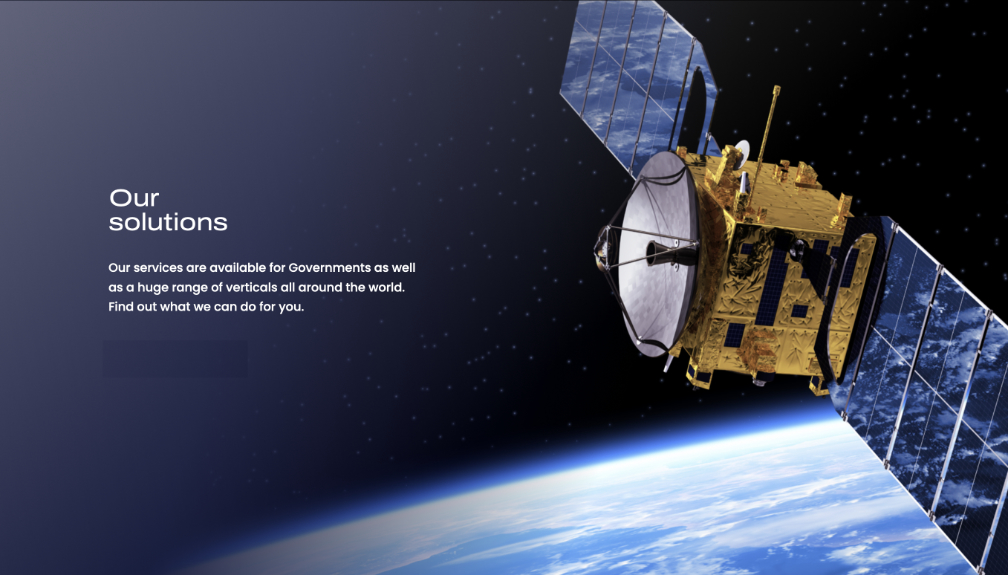
Rivada Space Networks GmbH has issued a request for proposals for 600 LEO satellites, having released the RFP for the associated, heavy-lift launch services two weeks ago.

The company anticipates selecting a prime contractor for the space segment, parts of the ground segment and system integration for the LEO constellation by the end of 2022 in parallel to the selection of the launch service provider.

For the first time, Rivada Space Networks will offer access to a secure satellite network with pole-to-pole reach, offering end-to-end latencies similar or better than terrestrial fiber. The Rivada network will operate like an optical backbone in space, using lasers to interconnect satellites and deliver an ultra-secure and highly reliable global data network for business operations in the telecom, enterprise, maritime, energy and government services markets.
Since formally launching in March 2022, Rivada Space Networks has been on a fast-track mission to complete the detailed definition of the overall system architecture and provide the production and deployment framework needed to place a firm contract for the constellation and associated launch services.
The preceding phase B study concluded that the procurement plan will successfully fulfill the requirements associated with the company’s high priority ITU Ka-band filings. With a contract for manufacturing and launch in place by the end of 2022, deployment will start in 2024, with 300 satellites in orbit by mid-2026 and full constellation deployment expected by mid-2028.
Clemens Kaiser, Rivada Space Networks Chief Program Officer, said, “Following a rigorous process with a number of leading satellite manufacturers, we are delighted that today we have completed another major milestone in the specification and development of our unique constellation to enable secure, global connectivity for governments and enterprises. The key attributes of RSN’s laser-linked LEO constellation architecture include global reach, low latency, ultra-security, resilience and optional quantum key encryption. We have worked tirelessly to ensure that our system comprises the best the satellite industry has to offer. We are really looking forward to moving to the next phase of our program to manufacture and deploy our LEO constellation.”
Severin Meister, Rivada Space Networks CEO, said, “RSN is a German ‘NewSpace’ innovator and disruptor. I am incredibly proud of what our team has achieved in such a short time frame. Over the course of the past eight months we have completed the design of our satellite system and grown our teams in Munich and Berlin to further develop the technical, commercial and regulatory competencies of the company. With over 60 people today, we anticipate expanding further to over 100 people by the end of Q1 2023 and are on track to execute our vision of providing the first truly global point-to-point low latency connectivity network.” Meister added: “Initial customers are showing great interest, which confirms that we will occupy a much-needed niche. This is the German NewSpace company to watch!“
Rivada Space Networks Founder, Declan Ganley, said, “I am thrilled that we have completed this important milestone. This is a unique satellite network in terms of security, speed and global reach.. Our constellation in combination with our patented Open Access Wireless Market Platform allows us to offer a network with unprecedented flexibility. It will be instrumental in driving the next leg of the ongoing communications revolution. Having recently joined the ITU Partner2Connect digital inclusion initiative and the EU’s multi-stakeholder Secure Connectivity Program, we are committed to providing a secure communications infrastructure like no other for Government and Enterprise.“
Rivada Space Networks GmbH is a disruptive new company set to establish and operate the first, truly global, low latency, point-to-point connectivity network of LEO satellites. By connecting its satellites with lasers, Rivada Space Networks will provide resellers and B2B customers with the ability to securely connect any two points on the globe with low latency and high bandwidth. The constellation of 600 low-earth-orbit communications satellites will represent a fundamental change in the availability of secure, global, end-to-end enterprise-grade connectivity for Telecom, Enterprise, Maritime, Energy and Government Services markets. Rivada Space Networks is a wholly owned subsidiary of Rivada Networks, Inc.
